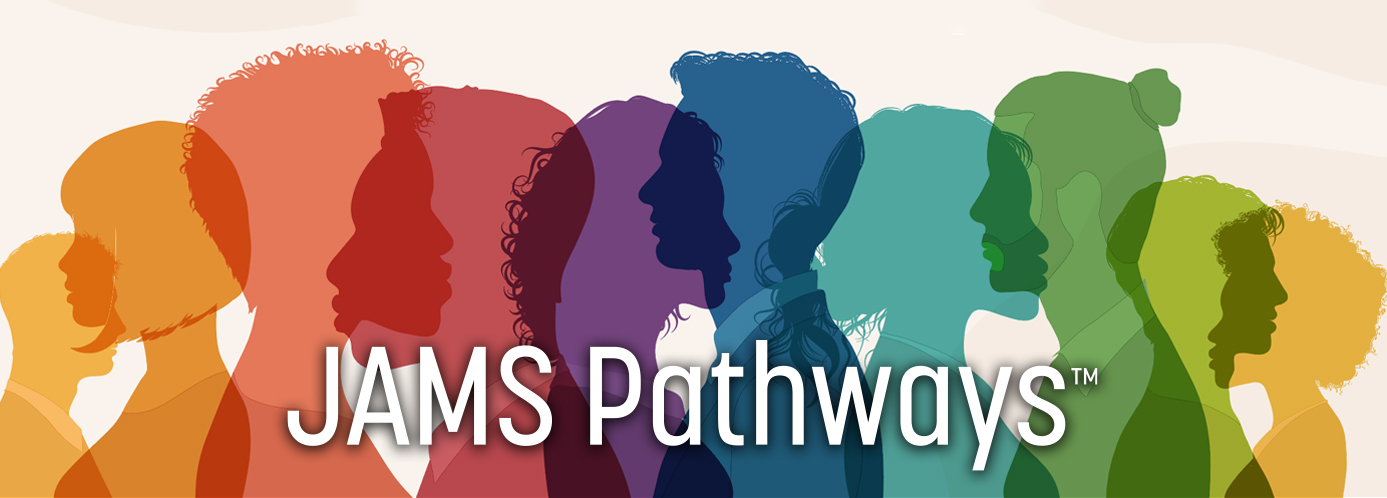JAMS Pathways Profile: Focus on Deirdre Gallagher

How does your background lend itself to doing JAMS Pathways work?
I’m both a teacher and a practitioner, and that blend enables me to promote skill building, guide processes and design resolution options for Pathways clients. The goal is to help people to navigate current challenges and position themselves to anticipate and prevent disputes in the future.
What is your motivation for doing JAMS Pathways work?
I’ve been a conflict resolver for over 25 years, and a thread throughout my work is to create environments where people’s voices are heard on decisions that impact them. This is at the core of the Pathways work, and I feel privileged to be a part of it.
What are the values that resonate most with you?
To listen more than I speak and to connect with others through this process. That is at the heart of what I do. In an increasingly contentious world, my work opens lines of communication and promotes learning for individuals, groups and organizations. Though people may not always agree, if they are able to view challenges from a different perspective, they might understand each other, which is the first step to moving forward.
What are your Pathways-related areas of focus?
Conflict is everywhere and I’ve been fortunate in my career to apply my skills and expertise in a range of realms, from public policy to employment to for-profit and nonprofit organizations to higher education institutions. While my work has touched many areas, I have spent considerable time with Pathways working with higher education institutions and health care entities to navigate the unprecedented challenges—internal and external—that confront them.
How would you describe your training style?
As a trainer, I am committed to delivering programs that reflect participants’ needs. This commitment begins well before the program, when I work with participants to understand their environments, challenges and goals for training. Informed by this feedback, I design a curriculum and develop customized exercises that will speak to and resonate with participants. As a trainer, I am also engaged, both in the material and the participants’ experience. I am passionate about the subject matter. No matter the theme—from collaborative communication to navigating differences in the workplace—I believe in the power of these skills to transform interactions. And I am invested in hands-on and concentrated effort to link the skills to the participants' experience through practice and conversation that resonate and introduce tangible takeaways to put into action.
When did you realize that you would devote your life to helping people overcome conflict and similar challenges?
After I graduated from college, I worked on promoting public participation around contentious policy issues. The stakes were high, tension was palpable and stakeholders could not communicate constructively—until a facilitator was brought in to establish a process for dialogue. The impact was immediate and transformational. I knew then that is what I wanted to do: to create spaces where people with vastly different perspectives could engage with—and maybe even understand—each other.
What professional accomplishments are you most proud of?
I embrace each opportunity to develop dispute resolution systems, because the process reflects my commitment to identifying options for resolving conflict at the lowest possible level. That said, my experience designing a mediation program for USERRA [the Uniformed Services Employment and Reemployment Rights Act] claims with the United States Office of Special Counsel was incredibly gratifying; I most enjoyed engaging with stakeholders to understand how to structure a program that would meet the needs of all involved, with a focus on a process to account for power imbalances between often unrepresented service members and government agencies. During the program's first year, the settlement rate was 100%. And while that is notable, more important was developing a responsive process that provided parties a chance to resolve conflict and move forward.
What is the best piece of advice you have received?
Embrace the power of silence. Silence can be uncomfortable. Early on in my career, I often had to resist the temptation to fill the void. Now, I welcome silence, knowing that people need space and quiet to listen, process and understand.
Learn more about JAMS Pathways here.
Disclaimer:
This page is for general information purposes. JAMS makes no representations or warranties regarding its accuracy or completeness. Interested persons should conduct their own research regarding information on this website before deciding to use JAMS, including investigation and research of JAMS neutrals. See More
